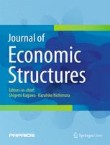ASEAN is one of the growth center in the world economy. The history of South East Asia used to be a history of wars for a long time during the 20th century. The current trend in the 21st century is, however, an integration of the South East Asian region. The ASEAN Summit meeting, which was held in 2000 in Singapore, adopted a special program for narrowing the development gap, calling it the “Initiative for ASEAN Integration” or “IAI”.
The establishment of ASEAN Economic Community (AEC) in 2015 is a major milestone in the regional economic integration agenda in ASEAN offering a huge market of US$2.6 trillion and over 622 million people. In 2014, AEC was collectively the third largest economy in Asia and the seventh largest in the world. Moreover, the IAI Work Plan III (2016-2020) was adopted in September 2016 as an integral part of the ASEAN 2025: Forging Ahead Together to support the implementation of three Community Blueprints including ASEAN Political-Security Community (APSC) Blueprint 2025 and ASEAN Socio-Cultural Community (ASCC) Blueprint 2025 as well as AEC Blueprint 2025.
ASEAN, however, has various kinds of challenges in spite of the rapid economic growth as follows. Poverty reduction: poverty rate of in CLMV countries (Cambodia, Lao, Myanmar and Vietnam) is still high and the income gap among CLMV and other member countries is still large. Industrial structure: growth engine is shifting from manufacturing to such tertiary industry as information/communication, tourism, business/personal services, and etc. Energy consumption structure: reduction of energy consumption and CO2 emissions is now an international commitment. International trade structure: trade structure in ASEAN is becoming more sophisticated and trade dependency of developed economies on ASEAN is getting higher. Environmental protection: deforestation is becoming worse and waste problem is becoming serious.
This special issue welcomes all the articles to address those challenges in ASEAN
Your article will be published free of charge!
Due to a generous grant by the Japan Society for the Promotion of Science (JSPS), all article processing charges (APCs) for all accepted articles for this Special Thematic Series will be waived.
Important dates:
Submission deadline for abstracts: August 31, 2017
Submission deadline for full manuscripts: December 31, 2017
Deadline for receipt of revised, final manuscripts: March 31, 2018
Publication: 2nd quarter of 2018
Special Thematic Series Editors:
Dr. Kim Kuangmoon (lead guest editor), Kyoto University, Japan
Dr. Fujikawa, Kiyoshi (lead guest editor), Nagoya University, Japan
